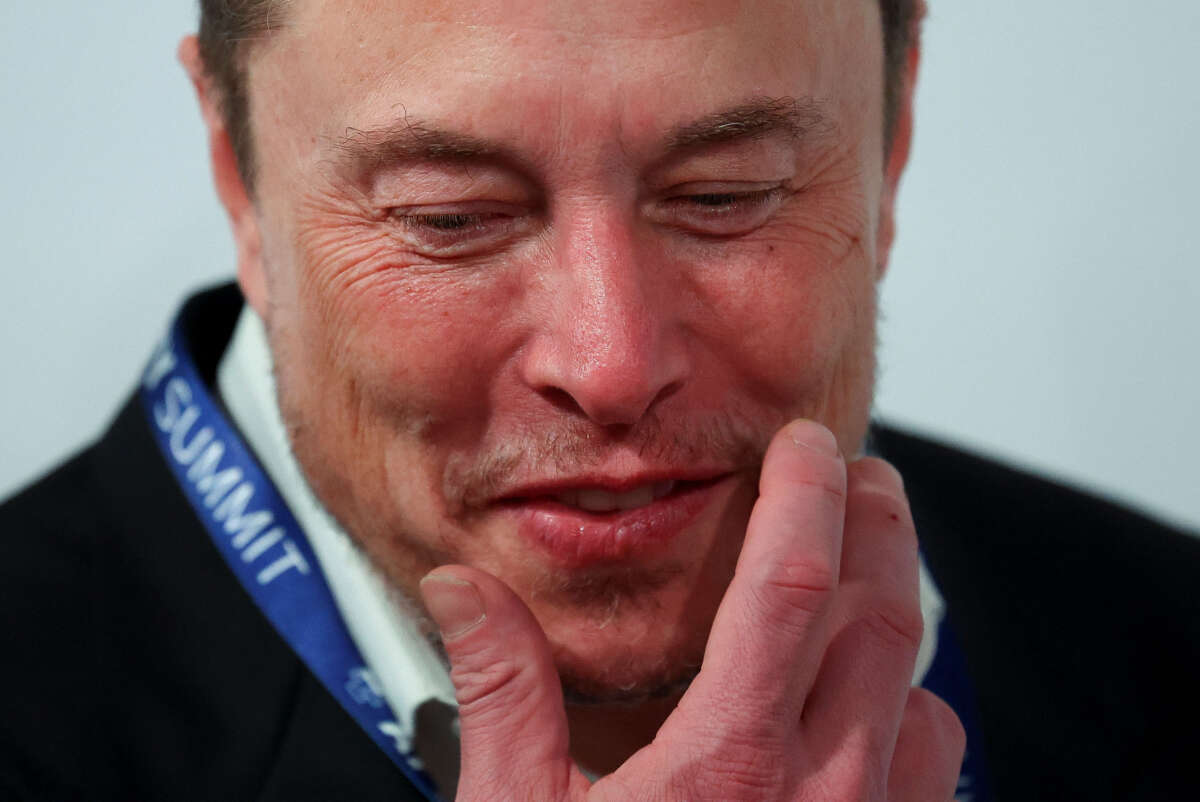Elon Musk’s social media company, formerly known as Twitter but changed to X since his acquisition of the site last year, is suing Media Matters for America, claiming that the nonprofit media company purposefully and maliciously defamed him and the company.
The suit stems from a report by Media Matters published last week, in which the organization showcased how far right antisemitic, white nationalist and neo-Nazi posts were appearing next to several big-name brands who were advertising on the site. As a result of the report — as well as Musk himself promoting antisemitic content — several advertisers, including Disney, Apple, IBM, Comcast, and others have paused their ads on X.
Prior to Monday, Musk had promised to sue Media Matters for its report, saying that he would file a “thermonuclear” lawsuit against the organization.
X claims that Media Matters manipulated algorithms in order to produce images to back their reporting.
“Media Matters knowingly and maliciously manufactured side-by-side images depicting advertisers’ posts on X Corp’s social media platform beside Neo-Nazi and white-nationalist fringe content and then portrayed these manufactured images as if they were what typical X users experience on the platform,” the lawsuit states, alleging that other viewers wouldn’t ordinarily see such content next to each other.
Media Matters President Angelo Carusone disputes X’s claims, and says he and his staff stand by their reporting. The real motivation by Musk and X is to reduce wider scrutiny of the platform.
“This is a frivolous lawsuit meant to bully X’s critics into silence,” Carusone said in a statement.
How is it the case that we are misrepresenting how often this phenomenon is occurring when we were able to document it so regularly in such a short period of time with only one researcher?
Conservative government leaders have begun to laud Musk for taking action against the progressive-leaning news site, including Texas Attorney General Ken Paxton (R), who has said he is opening a state investigation into Media Matters based on the claims brought by X.
But other reports have also demonstrated that X has a serious problem when it comes to allowing hateful content on the platform. A report from the Center for Countering Digital Hate (CCDH), for example, which Musk is also suing, found that 98 percent of hateful posts the group flagged for review on the site were still up one week later, including posts promoting Adolf Hitler as a positive political leader, denial of the holocaust, Islamophobic screeds and anti-Palestinian content.
X’s policies encourage users to report posts that directly attack other people “on the basis of race, ethnicity, national origin, caste, sexual orientation, gender, gender identity, religious affiliation, age, disability, or serious disease.” The site claims that it does its best to remove such content, but the report from CCDH questions whether that’s factual or not.
“Our ‘mystery shopper’ test of X’s content moderation systems — to see whether they have the capacity or will to take down 200 instances of clear, unambiguous hate speech — reveals that hate actors appear to have free rein to post viciously antisemitic and hateful rhetoric on Elon Musk’s platform,” the CCDH report said.
Musk also promoted an antisemitic post last week. The post in question promoted a conspiracy theory alleging that Jewish people were undermining Western cultural norms and pushing “hatred against whites” through support of less-restrictive immigration policies. Musk replied to the tweet by calling it “the actual truth,” prompting condemnation from many, including the White House, which described Musk’s action as “unacceptable.”
Many observers called X’s lawsuit against Media Matters frivolous, as the company has explained how it came to report its findings, and due to the fact that far right, white nationalist content is indeed proliferating on the site.
“The lawsuit is “utter nonsense, of course,” Daxton Stewart, a journalism professor at Texas Christian University, said to NBC News, “but that’s the way these self-described free speech warriors operate today. The goal is to chill free speech, and we can only hope it doesn’t work.”
“I’m not here to defend Media Matters but X’s lawsuit against them is a sad attempt by Musk to redirect,” media strategist Jason Kint said on the platform.
Caroline Orr Bueno, a behavioral scientist at University of Maryland, also derided Musk’s lawsuit against Media Matters. “Media Matters identified a bunch of mini-data-voids on Twitter/X where problematic content lives — & then reported on it, rather than exploiting them,” Orr Bueno pointed out.
When you search for an obscure or rarely-used hashtag or set of keywords — like what Media Matters did, and what a lot of people are now doing on Twitter/X — you will often stumble upon data voids, or informational dark spaces (IDS). That’s not fraud. This a known phenomenon.
Press freedom is under attack
As Trump cracks down on political speech, independent media is increasingly necessary.
Truthout produces reporting you won’t see in the mainstream: journalism from the frontlines of global conflict, interviews with grassroots movement leaders, high-quality legal analysis and more.
Our work is possible thanks to reader support. Help Truthout catalyze change and social justice — make a tax-deductible monthly or one-time donation today.
